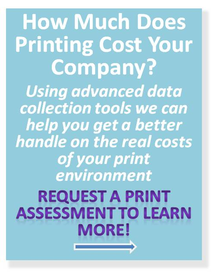 A recent article in CIO Insights outlines some of the stats on what for many is seen as a new activity but which in fact is much older. Email: Middle aged and still going strong outlines where email ranks today and compares its use to other e communications tools like Instant Messaging and Social Technologies.
A recent article in CIO Insights outlines some of the stats on what for many is seen as a new activity but which in fact is much older. Email: Middle aged and still going strong outlines where email ranks today and compares its use to other e communications tools like Instant Messaging and Social Technologies.
One of the most interesting stats given was that the average business user gets 110 emails per day and this will grow over 25 percent year on year.
I am assuming that the stat means 'valid' emails not the garbage that is constantly trying to fill your inbox and luckily can usually be filtered out with a good spam filter.
The article got me thinking about what we use email for especially in small business. Email is probably the most critical tool that is deployed on a IT network in most businesses. I think it can rank above business operations software or production management software since it is a common use tool for almost every level of employee.
So what are the key uses for email that see it continuing to grow in influence, even inspite of users frustrations with all of the negative components of email activity?
-
Immediacy - we see email as an almost instant communication, often wrongly but regularly reinforced when you get a response in seconds to an email you sent out.
-
Its FREE - well not really as it requires a significant investment in software, hardware, IT support, communication pipe to the internet, etc. But users and most businesses see it as a free medium...no per message costs.
-
It is flexible - you can make an email look fancy, but it can be a simple few lines of text as well. It can be long, short, informal, formal, whatever the communication requires.
-
Its trackable - Emails are recorded within the mail software and you can easily continue to follow a message stream if you conduct an multi email conversation. This stream can be archived for reference, something that is more and more important.
-
Emails can include documents for transfer - attaching documents to email has become a norm and has led to all kinds of new uses for email. Invoices are now routinely transmitted this way. Orders are done this way. Support issues are resolved this way. I personally have been dealing with a complicated support issue for a software package I use personally and the complete process is done by e-mail and has spanned a couple of weeks of interaction. It would have been impossible to accomplish the end result by phone or other communication means.
-
Of course email can be used for promotion - This is the more controversial part of email as at times it is abused and not used well. The use is valid and many people subscribe to special promotional emails and wait anxiously for them to arrive....it is just the unsolicitated ones that cause problems.
-
Pesonal correspondence - The traditionalists will tell you that email is not personal enough to be a primary tool for this but it is a substantial part of what drives email interaction. It also is a big piece of business email as it is used to set appointments, exchange data, review documents, track service, and on and on.
I'm sure there are hundreds of other reasons why in its 41 years, (you thought it was only a decade or so didn't you) email has become the most pervasive communication tool around. It has reduced the use of the telephone. It has impacted the use of mail substantially. It has almost eliminated fax in many industries. It has an impact on the level of printing done in offices.
It has permitted business to be transacted internationally at substantially reduced cost and with more convenience. Time zones have almost become irrelevant since the email you send can be dealt with easily by the person overseas on their timeline, without you having to try to figure out when they will be available to be reached.
We can wish at times that email was not so prevalent, until we next need the tool to carry out a key business task or communication.
How else has email impacted your business? Postively or negatively?
Comments are welcomed below...
Lee K




